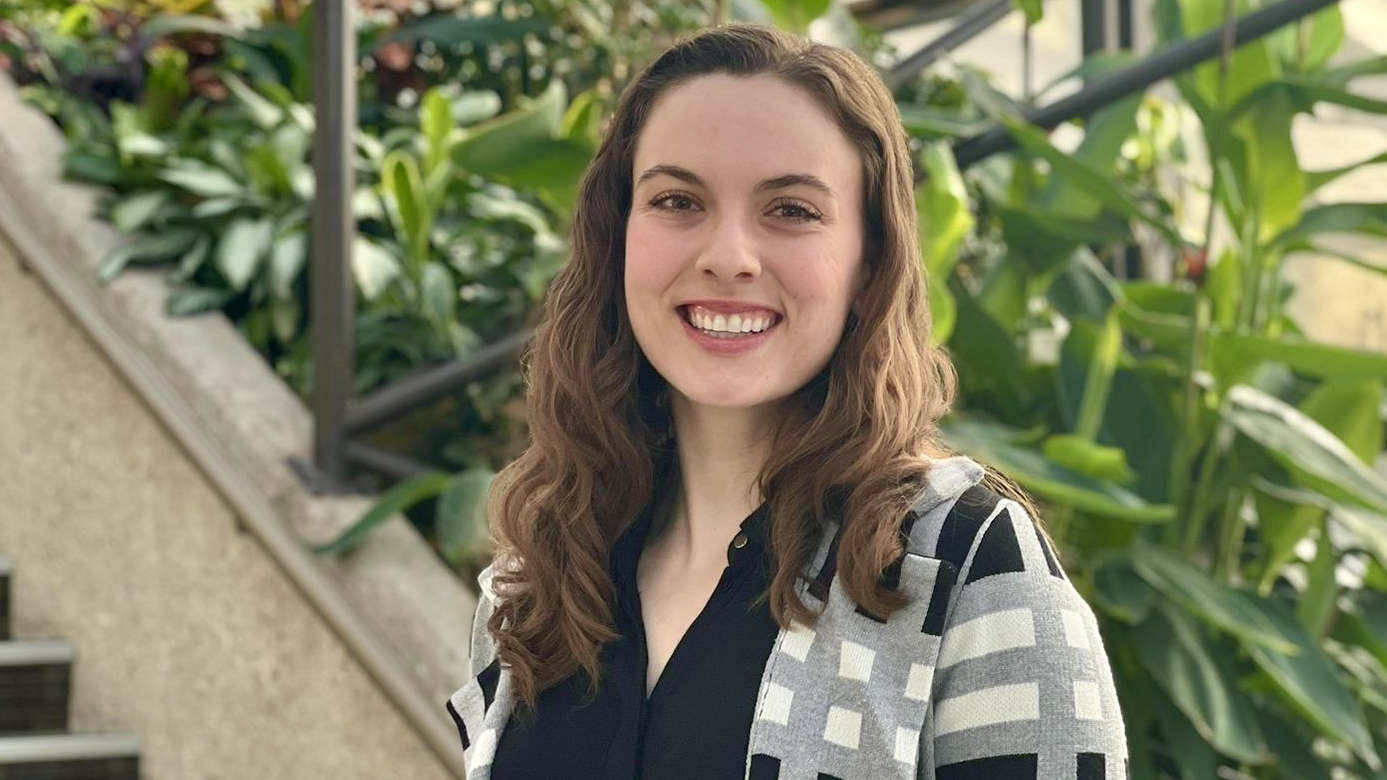Convocation ‘24: Anissa Armet, PhD in Nutrition and Metabolism
Donna McKinnon - 12 June 2024
While working as a registered dietitian, Anissa Armet realized that she wanted to expand her knowledge and contribute to the field of research on nutrition, focusing on how diet can influence the gut microbiome, an important indicator of overall health.
She chose the nutrition and metabolism doctoral program through the Department of Agricultural, Food & Nutritional Science for its novel nutritional microbiology projects and also because of the Human Nutrition Research Unit (HNRU), a state-of-the-art research and training facility led by Anissa’s co-supervisor Carla Prado, world-renowned expert on body composition and energy metabolism in disease trajectories.
In 2022, Anissa, Carla and medical student Hillary Wilson, published The High Protein Cookbook for Muscle Health During Cancer Treatment (available to download from the U of A Education & Research Archive). Her role was to test, photograph and edit all of the recipes in the cookbook, and then usher it into publication. Thousands of copies have been distributed to patients and dietitians all over Canada, and it has since been translated into other languages.
Inspired by her educational experiences, Anissa says her long term goal is to become a nutrition professor at the U of A.
“It’s the best place in the world to conduct and advance nutrition science and educate future nutrition professionals.”
Congratulations Anissa!
What program are you graduating from?
PhD in Nutrition and Metabolism
What led you to choose your current area of study, and why the U of A for your studies?
After finishing my dietetic internship and becoming a registered dietitian, I realized I wanted to pursue a career in nutrition research. I was particularly interested in researching how our diet changes the gut microbiome and how this, in turn, influences our health. The University of Alberta was the best choice for me to do a PhD in this area because my supervisor, Jens Walter, was conducting novel nutritional microbiology projects here. My co-supervisor, Carla Prado, was (and still is) the director of the Human Nutrition Research Unit, a world-class nutrition research centre that would also allow for unmatched training opportunities.
What is one of your favourite memories from your time at the U of A?
One of my PhD studies was a controlled feeding trial, which means we provided our research participants with all of their meals and snacks for the three-week intervention so we could precisely track exactly what and how much they were eating. I spent most of the first year of my PhD cooking for this project alongside a few research staff and volunteers. Cooking is one of my strongest passions, and I loved having the opportunity to apply this to my PhD research.
Tell us about your favourite professor and/or class.
Back when I was an undergraduate student, my favourite class was NU FS 428 - Advances in Human Nutrition and the Intestinal Microbiome. The professor of this class, Jens Walter, inspired me to want to do research in this area, and eventually became my PhD supervisor. As a graduate student, I then had the opportunity to be the teaching assistant for this course and gave several guest lectures. It was really rewarding to be on the other side of the podium, and I hope I was able to inspire a few students to take up an interest in how diet affects the gut microbiome.
Did you take on any leadership roles while you were a student?
Carla, Hillary Wilson and I published The High Protein Cookbook for Muscle Health During Cancer Treatment during my PhD. I took on several roles for this project, such as testing and photographing each recipe and editing the cookbook. I then helped lead efforts to publish the cookbook for free online and secure funding to print and distribute thousands of copies to patients and dietitians all over Canada. Carla and I were then invited to develop and teach a course on the importance of nutrition for muscle health during aging for the Edmonton Lifelong Learners’ Association, which was one of the most enjoyable, unique and rewarding teaching experiences I ever had.
Did you face any significant obstacles or challenges during your program?
One main objective of my research was to determine if responses to diet interventions could be predicted by gut microbiome features using machine learning. I had no previous experience in machine learning, so a significant challenge I faced was learning about this area and applying it in my studies. For two years, everyone in the lab could anticipate what my weekly update would be in lab meetings: running random forest models for my two projects. Needless to say, it took me a while to learn about machine learning, and I still have a LOT left to learn, but I hope to use what I’ve learned to eventually specialize in the application of machine learning in precision nutrition research.
What advice do you have for current and future students?
If you find one particular topic that really interests you in your studies, let that be your guide in your career choices.
How do you plan on celebrating convocation?
I’m originally from Edmonton, so I’m extremely lucky to be able to go out and celebrate my convocation with my family and friends. A small (but significant) portion of this celebration will involve me changing my email signature and LinkedIn profile to “Dr. Anissa Armet, PhD, RD”.
What's next after graduation?
I have started a postdoctoral fellowship in the Faculty of Medicine & Dentistry in Eytan Wine’s lab. I will have the unique opportunity to extend my PhD research on dietary fibre and the gut microbiome in the clinical setting of inflammatory bowel disease. I will continue to work towards my long-term goal of becoming a nutrition professor at the U of A, as I believe it is the best place in the world to conduct and advance nutrition science and educate future nutrition professionals.
